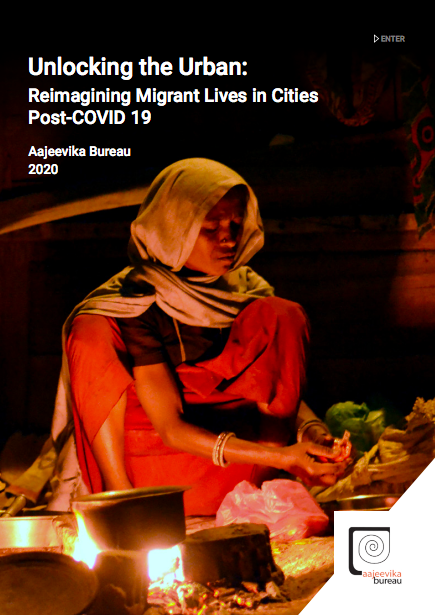Migration is not a new phenomenon in India. People have moved across the length and breadth of the country for various reasons, including work. Today, India has a burgeoning urban population, which contributes to about 63% of India’s GDP. A large section of this population includes migrants who for a desire for better livelihood leave their rural settlements and come to cities. However, with lack of requisite education, skills and training, they often end up in arduous employment accompanied with low wages, poor living conditions and lack of social protection. These disparities are quite visible when one sees around our cities, with thriving pockets and clusters of sub-standard living and prevalence of poor working conditions across sectors. Small industrial establishments, factories, home-based employment, construction industry and domestic work are some of the sectors which provide much-needed employment to migrant workers from rural India.
They work hard and contribute to the development of the city and the country’s economy. Unfortunately, this section of the population is left on their own to struggle to meet their ends and lead a life deprived of dignity. We ought to do more for the betterment of this vulnerable section of the society. For a country of India’s size and population this unabated unequal growth within a city’s periphery needs to be curbed. Opportunities of decent employment, proper social security, housing and living conditions should be addressed for all, including the migrants.
In 2015, the United Nations adopted 17 Sustainable Development Goals (SDGs), including Goal No. 8 (Decent Work and Economic Growth) and Goal 11 (make cities, human settlements, inclusive safe, resilient and sustainable). These goals re-instate the urgency on evolving policies, which lead to equitable growth and in turn are beneficial for one and all. Further, the Government of India adopted the Smart Cities Mission, which among other things aim at promoting sustainable and inclusive development.
There is some progress but more needs to be done, with renewed vigour if we are to realise the objectives of SDG Goals No. 8 and 11 within the timeframe of 2030.The policymakers at all levels need to fast track programmes and policies, which address the special needs of the migrants, both at the point of origin and destination. Aajeevika Bureau has been working closely with migrant communities, both at the source and destination, primarily in two Indian states – Gujarat and Rajasthan. The FES India Office has supported Aajeevika Bureau in undertaking an in-depth field research on the condition of migrants’ in two Indian cities – Surat and Ahmedabad. The research has come up with important policy recommendations to improve the working and living condition of migrants. The outcomes of this research may prove to be useful in ongoing and future policy discourses to make conditions for migrants

